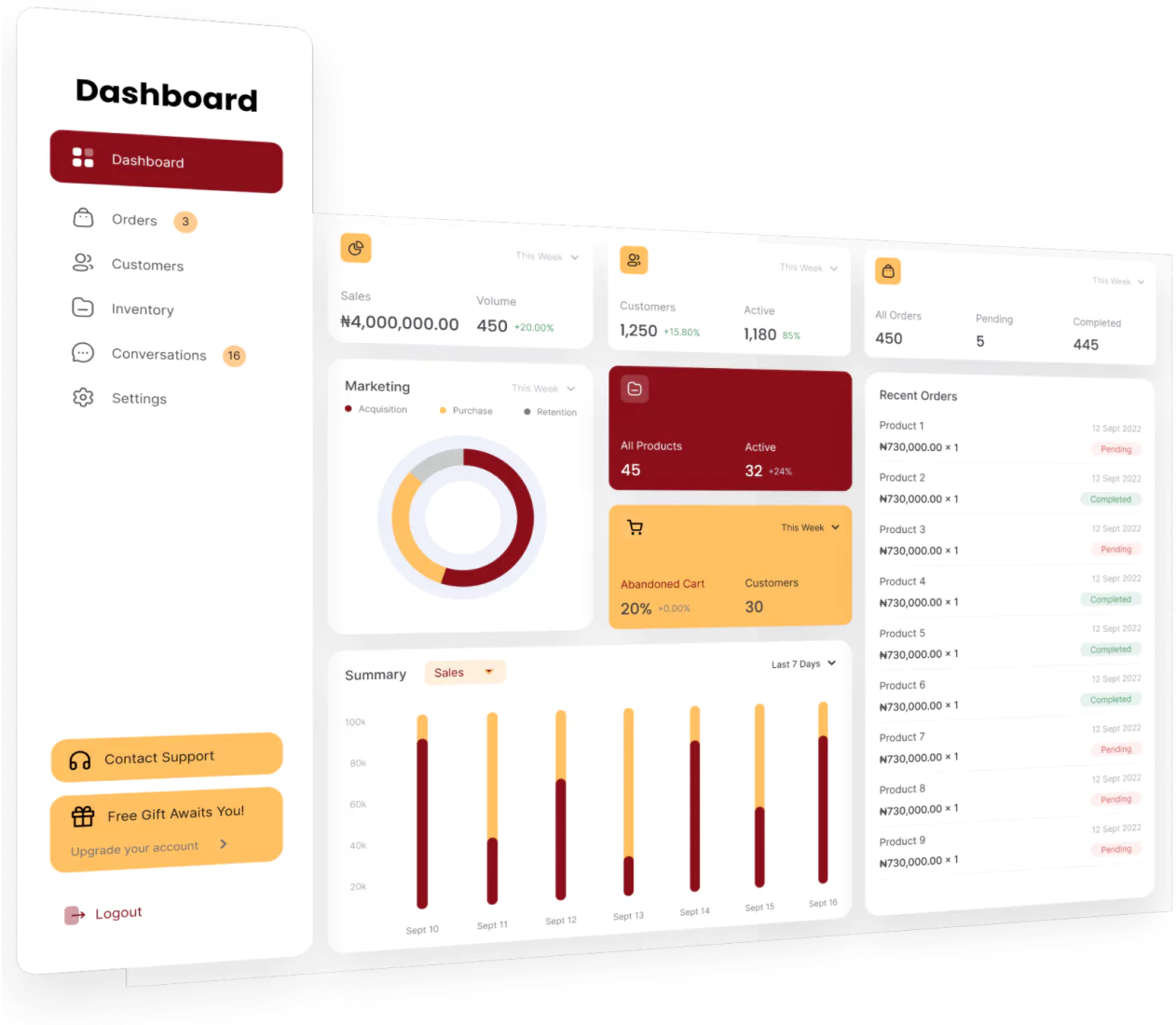Are your sales teams chasing the right leads or wasting time on the wrong ones? Predictive lead scoring helps businesses focus on prospects with the highest potential by using data to assess behaviors, interests, and fit. Instead of guesswork, you gain clarity on where to invest your resources for better conversion and faster sales cycles.
Without it, valuable leads can slip through the cracks. This article will explain predictive lead scoring, why it matters for your business, and how smart tools like HashMicro can support a more efficient and targeted sales strategy.
Ipagpatuloy ang pagbabasa upang matuklasan kung paano ka makakagawa ng mas matatalinong desisyon at makakamit ng mas magagandang resulta.
Key Takeaways
|
Table of Contents
What is Predictive Lead Scoring?
Predictive lead scoring is a smart way for businesses to determine which leads are most likely to make a purchase. Instead of relying on assumptions or manual rankings, this approach uses real data such as website activity, email engagement, company size, and past customer behavior to score each lead based on its likelihood to convert.
By combining these insights with machine learning, its continuously improves, helping sales and marketing teams focus on truly matter leads.
It’s like having a well-informed assistant who points you to the right opportunities, so your team can spend less time guessing and more time closing deals.
The Benefits of Predictive Lead Scoring
Recognizing the benefits of predictive lead scoring is essential for companies seeking to enhance their sales processes and optimize lead management. The following key advantages illustrate how this technology can significantly improve efficiency and increase revenue.
1. Foster alignment between marketing and sales
Ensuring seamless collaboration between marketing and sales teams is critical for effective lead management. Its establishes a unified framework that facilitates clear communication and coordinated efforts, resulting in smoother lead handoffs and more consistent messaging.
2. Maximize time efficiency
Predictive lead scoring accurately identifies high-potential leads, enabling sales teams to concentrate their efforts where they matter most. This targeted approach reduces wasted time on unqualified prospects and allows for a more productive use of resources.
3. Minimize human error
Manual lead evaluation is often prone to biases and inconsistencies. Utilizing predictive analytics reduces the risk of human error by relying on objective data and automated scoring models, thereby enhancing the accuracy of lead prioritization.
4. Achieve continuous optimization
Predictive lead scoring systems learn and improve by analyzing new data and outcomes. This ongoing refinement helps companies adapt their strategies, ensuring that lead scoring remains effective and aligned with evolving market conditions.
How does Predictive Lead Scoring Work?
Predictive lead scoring operates by gathering and analyzing a wide range of data from your leads and existing customers. This includes their behavior on your website, email interactions, company size, industry, and other relevant demographic details.
Using machine learning and statistical models, the system identifies patterns and signals indicating a lead’s likelihood to purchase. This approach’s power lies in its ability to continuously learn from new data and past outcomes, improving its accuracy over time.
Predictive lead scoring provides sales and marketing teams with clear, data-backed insights rather than relying on intuition or manual scoring.
This allows them to focus their time and resources on leads who genuinely have the potential to become loyal customers, making the entire sales process more innovative and more efficient.

Differences Between Traditional and Predictive Lead Scoring
Predictive and traditional lead scoring have the same purpose but rely on different approaches. Here’s a quick comparison of their core differences to help you decide which suits your business best.
| Aspect | Traditional Lead Scoring | Predictive Lead Scoring |
| Scoring Method | Based on manually assigned points | Uses data modeling and machine learning |
| Data Sources | Limited to predefined criteria | Combines behavioral, demographic, and historical data |
| Accuracy | Can be subjective and inconsistent | Data-driven and continuously optimized for accuracy |
| Scalability | Time-consuming to update as the business grows | Easily scales with large volumes of data and leads |
| Maintenance | Requires manual updates and reviews | Automatically adapts to new patterns and leads behavior |
Essential Steps for Implementing Predictive Lead Scoring
To apply predictive lead scoring effectively, businesses should follow a few essential steps that ensure accuracy and alignment.
- Define clear business objectives: Before diving into the technical side, it’s essential to establish what you want to achieve with predictive lead scoring. Whether it’s shortening the sales cycle, improving lead qualification, or increasing conversion rates, having specific goals will guide the setup and ensure alignment across teams.
- Collect and organize relevant data: Gather historical data from your CRM, marketing automation tools, and website analytics. This includes demographic information, behavioral signals, and past customer interactions—anything that could help identify patterns in lead behavior.
- Choose the right predictive scoring tool: Select a platform or solution that integrates well with your existing tech stack and can analyse your collected data like lead management software. Look for tools that offer machine learning capabilities, custom scoring models, and real-time updates.
- Train the model and test for accuracy: Once your data is in place, the system will build scoring models. This step often involves training the model on past data and refining it as new data comes in. It’s crucial to validate the scoring accuracy by comparing predictions with real-world outcomes.
- Align sales and marketing teams: For predictive scoring to work, marketing and sales must understand and trust the system. Ensure that both teams are involved in reviewing the criteria and results, and work together to fine-tune the process as needed.
Simplify Predictive Lead Scoring with HashMicro Software
Implementing its can seem overwhelming, especially for businesses new to automation or data modelling. HashMicro simplifies this process by offering an integrated CRM solution that combines intelligent algorithms, centralised data, and automation tools in one platform.
The software collects and analyses behavioural and demographic data from multiple channels to generate lead scores that reflect real buying potential, eliminating manual work and human error. With built-in visual dashboards and customizable scoring models, teams can make faster, more confident decisions about where to focus their time and resources.
HashMicro also promotes collaboration between marketing and sales by providing shared visibility into lead quality and conversion potential, making your entire pipeline more efficient and aligned. Key features of HashMicro for predictive lead scoring:
- Automated lead scoring engine: Leverage machine learning to evaluate and prioritize leads based on behaviour, engagement history, and demographic data.
- Real-time data integration: Connect your CRM, marketing, and sales channels seamlessly to ensure that scoring reflects the most recent lead activity.
- Customizable scoring models: Tailor scoring rules to match your business goals and customer journey, ensuring a better fit for your sales pipeline.
- Visual dashboards & reports: Gain clear insights into lead quality, scoring trends, and conversion performance through user-friendly dashboards.
Conclusion
Predictive lead scoring is more than just a smart use of data. It is a strategic approach that helps businesses identify, prioritize, and convert leads more accurately. By using real-time insights and minimizing guesswork, companies can enable their sales and marketing teams to focus on leads most likely to convert.
As customer behaviour becomes more dynamic and competition intensifies, adopting predictive tools is no longer optional but essential.
For businesses looking to take the next step toward more innovative lead management, exploring solutions like HashMicro can be a practical place to begin. You can even request a free demo to see how it works in your business environment.

FAQ Predictive Lead Scoring
-
What is the lead scoring rule?
Effective lead scoring combines prospect demographic and behavioral data to prioritize leads. Two of the most commonly used scoring dimensions are: Prospect identity: Who the prospect is, signified by explicit data that determines fit, such as title, industry, and company revenues.
-
What is the lead scoring model?
A lead scoring system (or model) lets you attribute point values to prospective buyers. Once they accumulate a set number of points, they become qualified leads. It means they are likely to make a purchase and sales reps can contact them. Those who rank the highest on the scale should be contacted first.
-
What is the purpose of scoring model?
Scoring models analyze collections of data to return a single metric indicating how creditworthy a potential client is, thus saving companies enormous amounts of time, as well as providing them with a trustworthy and tested data analysis service.





















